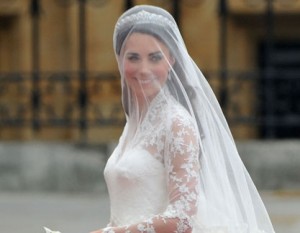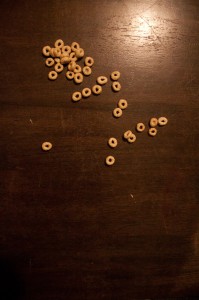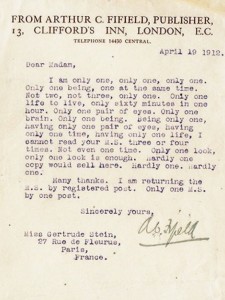My father writes about some of the Kates and Pippas of literary renown …
http://www.barder.com/3200
April 30th, 2011
 Oh, no, not that wedding again? Calm down, dear, it’s only a footnote. According to the tabloids and the internet, Pippa Middleton, sister of the new Princess William formerly known as Kate, stole the show yesterday for many viewers, not only more than rivalling her sister’s good looks but prompting excited comments about a particular aspect of her figure. A Daily Mirror headline, for example, screams:
Oh, no, not that wedding again? Calm down, dear, it’s only a footnote. According to the tabloids and the internet, Pippa Middleton, sister of the new Princess William formerly known as Kate, stole the show yesterday for many viewers, not only more than rivalling her sister’s good looks but prompting excited comments about a particular aspect of her figure. A Daily Mirror headline, for example, screams:
Pippa Middleton bridesmaid dress sparks Facebook fan page for her bottom
and sure enough, there’s the facebook page in question, already marked as ‘liked’ by more than 44,000 connoisseurs of the anatomical feature in question. But on a more elevated level, the catapulting to national celebrity status of the lovely Pippa must have sent at least some of us to our collected poetry of the now much neglected Robert Browning:
from Pippa Passes
The year’s at the spring
And day’s at the morn;
Morning’s at seven;
The hillside’s dew-pearled;
The lark’s on the wing;
The snail’s on the thorn:
God’s in His heaven—
All’s right with the world!
– of which the last couplet at least has achieved immortality, if the rest of the long narrative poem hasn’t.
SRD GIRL. [To PIPPA who approaches.] Oh, you may come closer: we shall not eat you! Why, you seem the very person that the great rich handsome Englishman has fallen so violently in love with! I’ll tell you all about it.
Here Browning evidently foresees the impression that some observers claim to have got from the proceedings yesterday that Prince Harry, brother of the groom, sharing responsibility for the young bridesmaids and page boys with Pippa, the sister of the bride, appeared somewhat smitten by her, being overheard (or lip-read) to whisper to her a gallant tribute to her beauty, although whether Browning’s description of young Harry as “the great rich handsome Englishman” fits the bill is for others to judge. Anyway, I doubt if Harry’s long-time girlfriend Chelsy Davy has anything to worry about.
Cole Porter also obviously had a premonition, putting words into the mouth of the groom on the red-quilted palace balcony (only confusing the prince’s nickname with his Dad’s):
FRED:
So, kiss me, Kate, thou lovely loon,
‘Ere we start on our honeymoon.
So kiss me, Kate, darling devil divine,
For now thou shall ever be mine.
But let Shakespeare have the last word, even if he also gets a little confused over who would be speaking — William, obviously, not Harry, still on the balcony:
Kate, I cannot look greenly nor gasp out my eloquence, nor I have no cunning in protestation; only downright oaths, which I never use till urged, nor never break for urging. If thou canst love a fellow of this temper, Kate, whose face is not worth sun-burning, that never looks in his glass for love of any thing he sees there, let thine eye be thy cook. I speak to thee plain soldier: If thou canst love me for this, take me: if not, to say to thee that I shall die, is true; but for thy love, by the Lord, no; yet I love thee too…
Now, welcome, Kate: and bear me witness all,
That here I kiss her as my sovereign queen.
Well, his queen-to-be, anyway.








